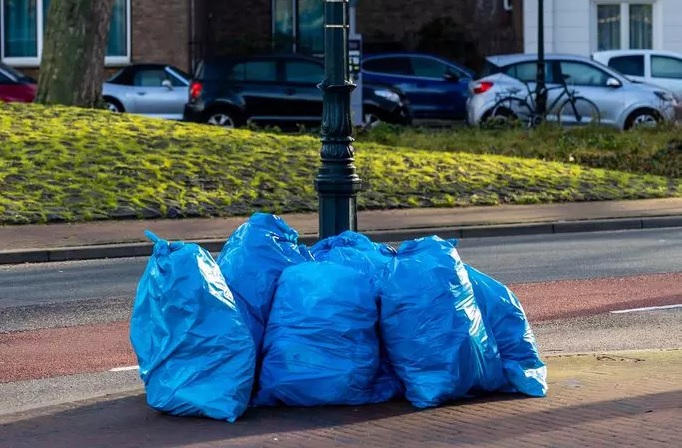Belgium has a uniform collection system that helps simplify sorting and collection for consumers. By now, we all know the blue bag is for PMD-PMC waste which includes plastic packaging, metal packaging and beverage cartons, among others (and if you need some help for sorting, you can check out the Bruxelles Propreté website).
Take the example of beverage cartons: they have been collected within the PMD bag since 1994. Since then, there have been many EU-wide collaborations and investments into developing technologies and facilities to improve the recycling processes of beverage cartons for more qualitative recycling streams and output.
Beyond investments, what makes the Belgian system so effective is that legal recycling targets have been imposed at country level. Today, beverage cartons are recyclable and recycled at scale, and while the recycling of beverage cartons in Europe (EU-28) has steadily increased over recent decades, Belgium is among its top students. This will play an important – and likely positive – role for Belgium when looking at upcoming European legislation, specifically the Packaging and Packaging Waste Regulation (PPWR) that is due to be adopted later this year.
For the EU novices out there, because it is a Regulation, this means that the rules established by this document will be binding to every citizen and economic operator in Europe, with the goal of creating a harmonised approach at EU level. The proposed Regulation itself proposes measures on items like reuse, recyclability, recycling, collection, labelling and more… And it has the whole EU bubble laser focused, facing discussion and raising questions on the content of the current draft of the Regulation.
Disclaimer: Beverage cartons are fully recyclable and recycled at scale in the EU - see how the materials are separated when put into a blender, imitating the process of a recycling plant.
Among many questions is the one raised by the Alliance for Beverage Cartons and the Environment (ACE). They are currently calling on the European Parliament to include a mandatory collection target for all packaging in the PPWR. Why? Because if you do not collect, you cannot recycle. As the proposed PPWR plans to ban packaging that is not recycled at scale it is only good governance to ensure that there is a legal requirement to collect packaging at high rates. Belgium, again, is the perfect example for it: if you have legally binding targets, these will allow for an effective collection and recycling system.
Overall, the country is particularly performant in the collection, sorting and recycling of household packaging with Belgium firmly taking on more ambitious targets than the EU itself, establishing a target of 70% plastics recycling rate for 2030 (compared to 55% for the EU) and a 95% household packaging recycling rate (vs. 65% for the EU).
But when it comes to packaging, there are some immediate questions that come up, notably the roles that both reusable and recyclable packaging play in an overall packaging landscape. It all depends on the value that different options deliver. Some products like milk and juice are very sensitive and need specific packaging to preserve their vitamins and nutrients, avoid food waste and allow long shelf-life.
While other packaging options exist, there are some limitations to these alternatives that are often forgotten such as weight (the heavier a package, the more emissions produced during transport), but also during their cleaning process for reuse, seeing as a lot of energy and water would be needed to get these other packaging options back up to proper hygiene norms. Imposing a one size fits all reuse target for sensitive products in all Member States will not deliver proven benefits.
So, what will happen next? While the PPWR will no doubt have an impact on the management of packaging waste across Europe, chances are that – as Brussels consumers – we will need to be more mindful of what we put in our different bags, white, yellow, blue and orange so our garbage is properly collected. If you’re in Brussels and are still unsure of the communal rules, download the Recycle! APP which combines all the information about waste collection in your municipality. Remember, the blue bag in Brussels will always be your go to resource for collecting your beverage cartons.

